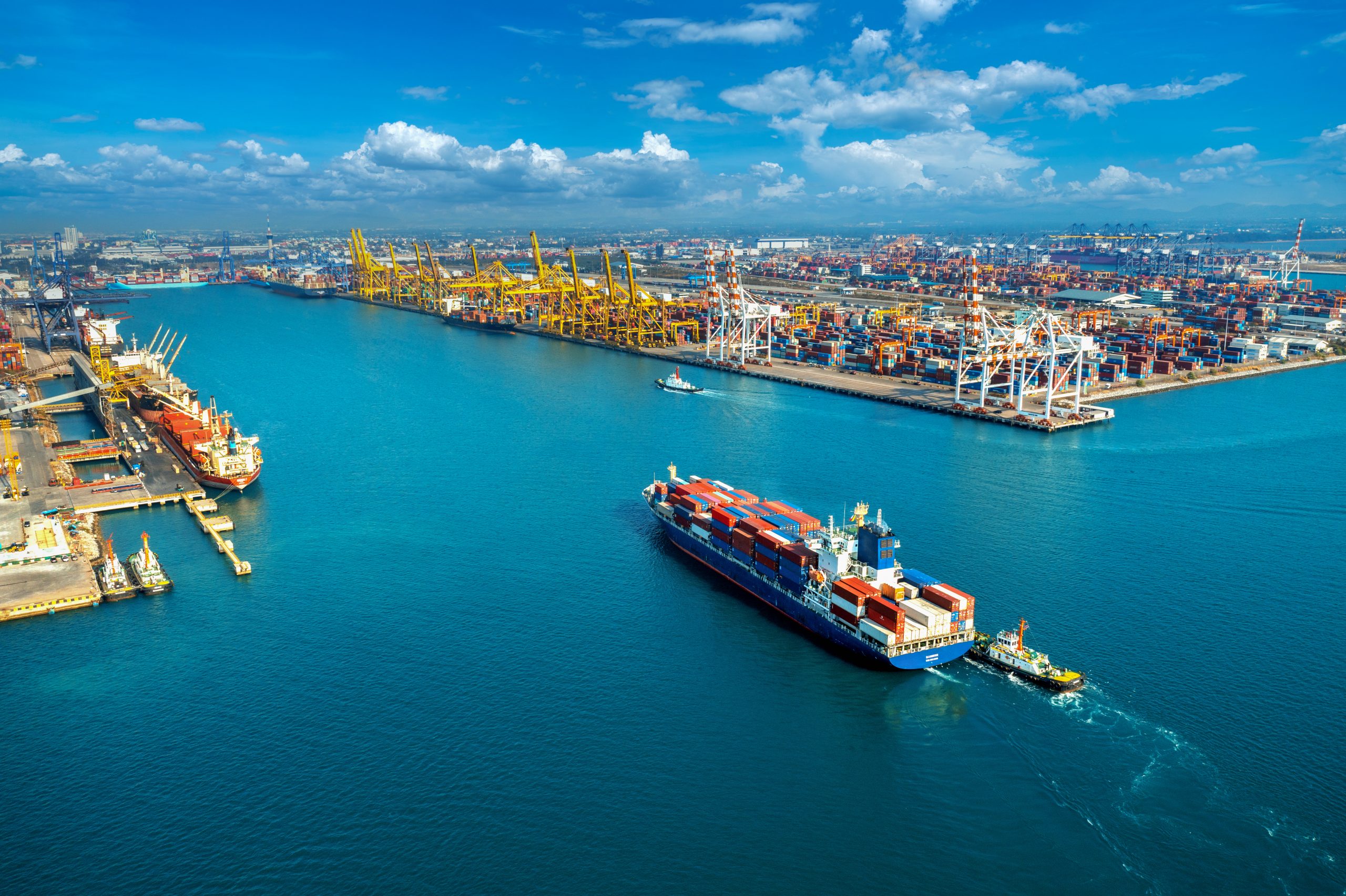Sharm El-Sheik (7 November 2022) — Nine Ocean Panel member countries have announced new commitments as part of the initiative led by fellow Panel members, Norway and USA, to decarbonise their shipping industries and significantly cut greenhouse gas (GHG) emissions.
The world relies on marine shipping to conduct trade and strengthen global supply chains, however shipping comes at a considerable cost to the planet’s health. Emissions from shipping are currently not compatible with the goals of the Paris Agreement. Compared to country emissions, the sector currently would rank among the top ten largest emitters globally.
Emissions from shipping have on average increased over the last two decades, and in 2021 emissions from the international shipping sector grew by 5 percent, rebounding from a decline in 2020 due to COVID-19 to reach 2015 levels. To achieve net zero emissions by 2030, a nearly 15 percent reduction in international shipping is needed.
During the World Leaders Summit at COP 27, members of the High Level Panel for a Sustainable Ocean Economy (Ocean Panel), Norway and the USA launched a new initiative to decarbonise their shipping industries and challenge other countries, ports and companies to join them in this ambitious goal.
Aligned with this year’s “Implementation COP”, the Green Shipping Challenge is focused on action and delivery. As part of the Challenge, governments, ports, and companies have announced steps that will help put the shipping sector on a pathway this decade to align with the 1.5 degree goal.
Nine Ocean Panel members countries have stepped forward with new commitments as part of the challenge:
- Australia
- Canada
- Chile
- France
- Namibia
- Norway
- Portugal
- United Kingdom
- USA
Commitments include proactive steps towards expanding zero or low-emission fleets that will see a transition away from fossil fuels and advancing international cooperation to create ‘green shipping corridors’ along established routes. See the full list of commitments on the Green Shipping Challenge webpage.
The Ocean Panel strongly supports this challenge as it aligns with the shared ocean action agenda launched by the Panel, Transformations for a Sustainable Ocean Economy which calls for action to rapidly decarbonise the ocean transport sector as a key part of the transition to a sustainable ocean economy where effective protection, sustainable production and equitable prosperity go hand-in-hand.
Ambitious action, like the Green Shipping Challenge, is needed urgently to support the transition to a sustainable ocean economy that can provide food, empower vulnerable coastal communities and Small Island Developing States, power our cities, transport our people and goods and provide innovative solutions to the global challenge of climate change.
Jonas Gahr Støre, Prime Minister of Norway and co-chair of the Ocean Panel:
“Shipping is a major emitter of greenhouse gases globally, therefore it’s vital that quick and decisive action is taken at scale to reduce emissions from this sector to help limit temperature rise to 1.5°C. The Green Shipping Challenge creates an opportunity for participants to push towards cleaner alternatives and provide a major boost in the transition to a sustainable ocean economy.
As co-chair of the Ocean Panel, I’m proud to see that eight member countries are making commitments as part of this initiative, leading the way on ambitious ocean-based climate action.”
Surangel S. Whipps Jr, President of Palau and co-chair of the Ocean Panel
“Collaboration is vital in the race to limit the worst effects of the climate crisis. The Green Shipping Challenge is an excellent example of decisive action from national governments and industry, working together to address emissions from shipping.
The Ocean Panel’s ‘ocean action’ agenda has been very clear that decarbonising the shipping sector is a key part of the transition to a sustainable ocean economy. The commitments announced today show real leadership on this important issue and are strongly endorsed by the Ocean Panel.”


 Previous
Previous


